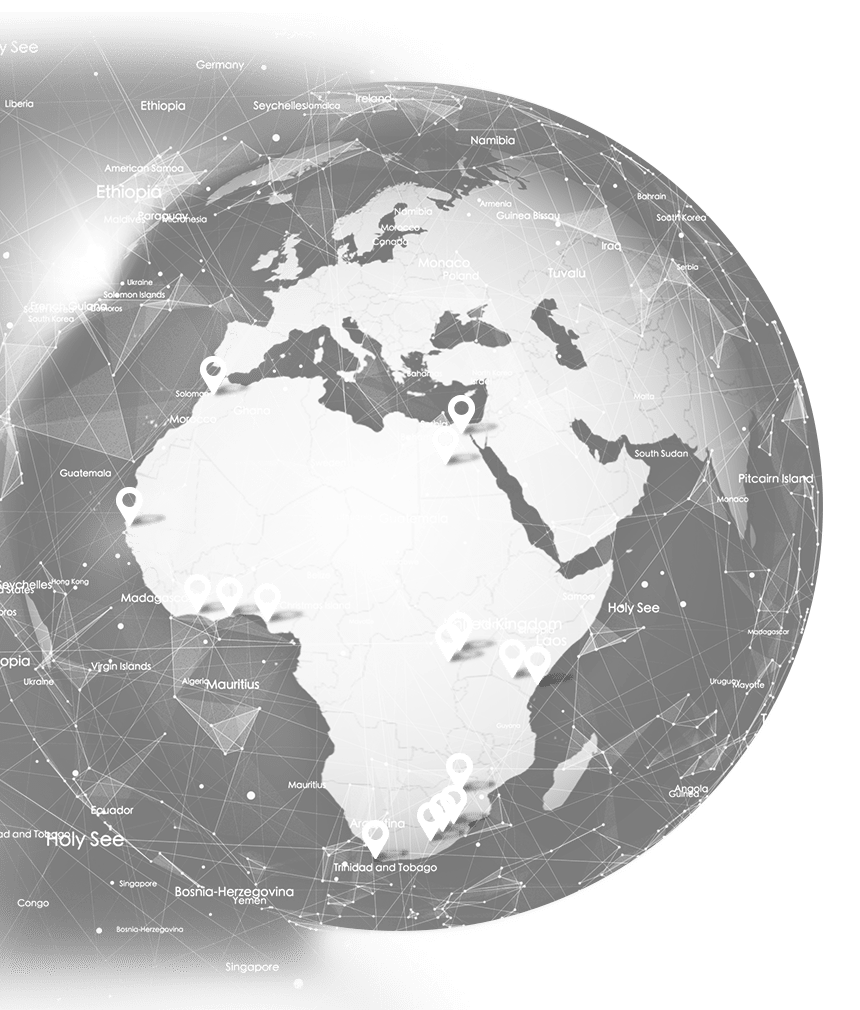Already Africa’s largest carrier-neutral data centre operator has earmarked a billion dollars to extend its network first to Lagos, Nigeria and Accra, Ghana. The company will follow this with moves into Egypt and Morocco.
“Africa is a continent where 50% of the population is much younger than anywhere else and they are all using digital tools. That digital content is going to have to be stored somewhere, yet the continent has only 1% of the globe’s storage capacity,” says Africa Data Centres CEO, Stephane Duproz. “Imagine the potential! It’s just a matter of being able to accommodate that goal.”
Duproz confirms that premium pieces of land have already been acquired in Lagos and Accra, although he is not able at this stage to be more specific about the company’s plans, including timelines, for Egypt and Morocco.
Africa Data Centres is already in five major African cities – Johannesburg, Nairobi, Harare, Cape Town and Kigali. Duproz says he expects that number to rise to somewhere between 12 and 15 in the next 20 months.
With over 20 years’ experience running large data centres, Duproz, explains that several factors are driving Africa Data Centres’ growth.
“The major cloud operators – Microsoft and Amazon Web Services (AWS) – recognised Africa’s potential some years back but did not arrive on the continent until 2018, when Microsoft took some capacity in Southern Africa. Naturally, they look for infrastructure security, power supply security, availability of coding – the same as any big, domestic corporate. The corporates, for their part, are also always under pressure to improve customer service and cut costs.
“The role of a data centre is to bring those players together. If you’re a bank, for example, and you migrate to one of our data centres, you’re now under the same roof as the big networks. As a result, you’re able to reduce the cost of connectivity dramatically[RM1] . And you can connect without latency to the data that’s stored in the cloud. That’s vital for good customer experience.
“The interaction between these forces creates an ecosystem that generates huge, digital dynamism in the country. The data centre becomes the foundation at the crossroads of the digital economy,” says Duproz.
He notes that it is also important for a data centre, like those operated by Africa Data Centres, to be carrier-neutral.
“Of course, there are other big data centres, often associated with mobile networks. But if you use one of those, you’ll find that you are only able to use that company’s infrastructure or only able to access that particular group of customers. For a big cloud operator, that’s not enough – a major cloud operator needs to be connected to all the telecoms operators in a country. If you look at all of the big data centre success stories in the world, all of them have been carrier neutral.”
Duproz notes that these success stories also have a large footprint of interconnected data centres.
“Yes, there are data centres which can do everything I’ve described above. But in one country only. Africa Data Centres is the only one that interconnects across Africa.”
Because of this, the company has been able to attract the big American cloud providers, says Duproz.
“They rely heavily on the quality of the data centre, so they audit the way we operate, our capacities of excellence, the way we build data centres. Just like I would with them. But now they have a trusted supplier and one with which they have gone through the pain of contractual negotiations. Now they have the same contract which they can apply everywhere, the same point of contact, the same operational procedures, the same products. This makes it so easy for them that, in some instances, they wait for us to arrive in a country before developing there.”
“Africa Data Centres is the largest network of carrier-neutral data centres in Africa. That positioning is a key strength,” says Duproz.





